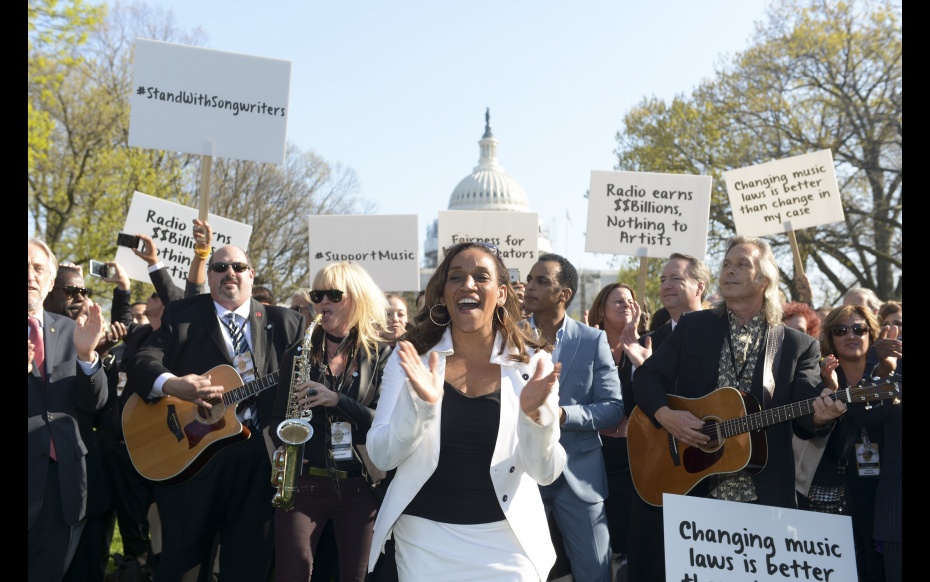
20 Jan Advocacy: Music Reform Issues You Should Support
The Recording Academy represents its 23,000 members: performers, songwriters, producers, engineers and other music professionals (no company members). As the only organization that represents the interest of all music creators, our platform is simple: Fair market pay for all music creators across all platforms.
But while all music creators deserve fair pay, music licensing today is governed by a patchwork of laws that doesn’t reflect the evolving digital marketplace and results in creators receiving below-market compensation. As a result, future artists will increasingly find it difficult to build a career in music, depriving all of us of new music that enriches our lives and culture.
Today, Congress is looking at potential changes to copyright law, providing us with a historic opportunity to update music licensing reform to ensure fair market pay for all music creators across all music platforms. Real music licensing reform must address the following elements:
- Fair Rate Standards for Songwriters and Composers: Outdated rules that govern how royalties are set for songwriters must be changed so that when rates are set by government bodies, they should approximate the rates that would be negotiated in the free market.
- Rate Parity for Sound Recordings Across Platforms: Fair Play Fair Pay Act (H.R. 1733) – Whether music is played on satellite radio, Internet radio, or traditional AM/FM radio, all music services should compensate artists under consistent, uniform standards that reflect fair market value.
- Proper Compensation for Producers and Engineers: Allocation for Music Producers Act, or AMP Act (H.R. 1457) – Producers and Engineers are the only class of music creator completely left out of our copyright laws. They should be protected in the law so that they receive fair and direct compensation for their work whenever their music is streamed on digital radio.
Real music licensing reform can only happen through comprehensive legislation that addresses the needs of the entire music community.
FAIRNESS FOR SONGWRITERS
Songwriters need bold reform to address antiquated regulations and laws that prevent them from receiving fair compensation.
- Outdated Consent Decrees – ASCAP and BMI, two of the performing rights organizations (PROs) relied upon by songwriters and composers to collect royalties for public performances, are restricted by consent decrees issued by the Department of Justice (DOJ) that date back to 1941. These outdated decrees have failed to keep pace with changes in technology and the music marketplace and constrain the PROs from securing fair compensation for their songwriters.
- Struggles with Streaming – The disparity for songwriters is seen clearly in digital streaming. Recent issues leading to lawsuits and settlements between songwriters and streaming services could have been avoided if the consent decrees had been modernized to give the PROs the flexibility to offer more types of licenses and negotiate rates that more closely approximate the free market.
- A Harmful Decision – After a two year review of the consent decrees that was supposed to result in helpful reforms, the Department of Justice instead decided to impose new restrictions on ASCAP and BMI that would upend the current process for licensing musical works. Specifically, the DOJ ruled that ASCAP and BMI are required to offer “full work” licensing of songs instead of the current practice of “fractional” licensing. This change could stifle collaboration among songwriters, make it harder for them to receive their royalties, and further devalue their work.
- Uncertainty for PROs – While a federal judge has ruled against the DOJ’s interpretation of the consent decrees and in favor of BMI, the issue is still not resolved. DOJ has appealed the decision and ASCAP and BMI are still left with uncertainty. There may still be a role for Congress to play to ensure that songwriters are not harmed by the DOJ’s ruling and to effectively reform the consent decrees.
- Outdated Laws –Section 114(i) of the Copyright Act prevents federal rate courts from considering all of the relevant evidence for determining the fair value of musical works when setting performance royalty rates for songwriters. The result is an uneven playing field. Section 115 of the Copyright Act has regulated musical compositions since 1909. It allows anyone to obtain a compulsory license to reproduce a song in exchange for paying a statutory rate. The initial rate set by Congress in 1909 was 2 cents per song. Today, that rate is 9.1 cents. This miniscule increase is due to current law, which uses a rate standard that does not reflect fair market value. Sec. 115 should be amended to apply the free market “willing buyer, willing seller” standard to mechanical licensing.
- A Legislative First Step –In the 114th Congress, the Songwriter Equity Act took an important step towards reform for songwriters that addresses the issues with Sec. 114 and 115. Similar legislation should be included in any comprehensive music legislation considered by the current Congress.
To get behind these issues, instructions are below:
- Click Here
- See Key Issues: Tell Congress to Support Comprehensive Music Reform
- Click “Take Action
- Enter Your Address
- Once the prepopulated letter comes up with your state representatives, complete your Contact Info to the left.
- Preview and Send
